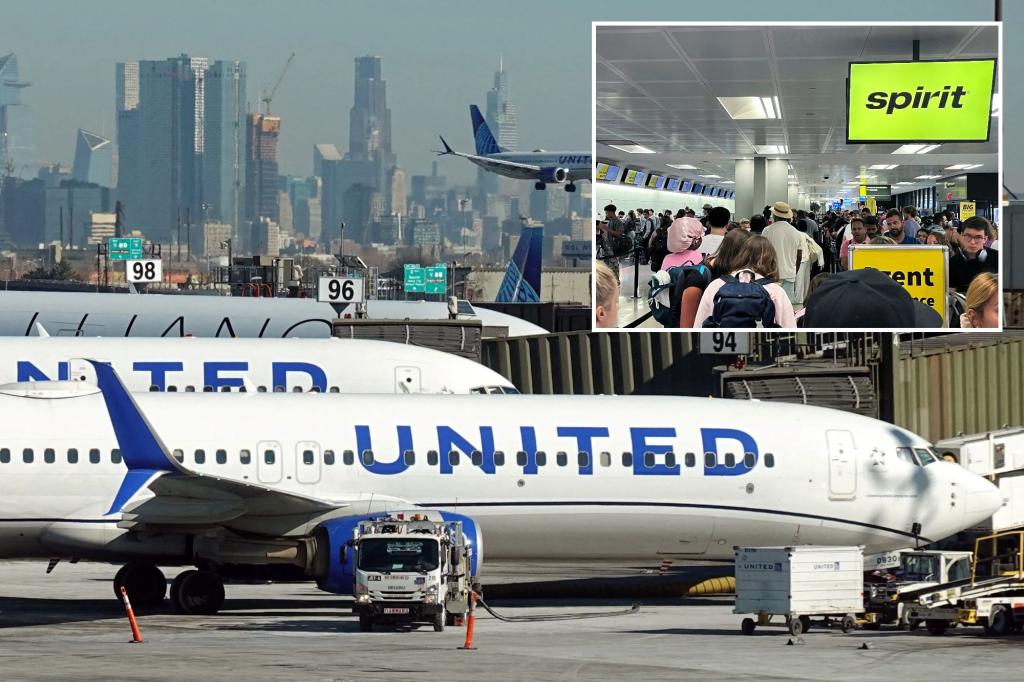United and Frontier Respond to Spirit Airlines’ Financial Struggles
As Spirit Airlines navigates its second bankruptcy filing, competitors are swiftly moving to capitalize on the discount carrier’s market retreat. This shift in the airline landscape demonstrates how quickly major carriers can adapt to changing circumstances in the highly competitive aviation industry.
United Airlines has launched an aggressive expansion strategy targeting Spirit’s key markets, announcing plans to add flights to 15 cities where Spirit currently operates. These include popular destinations like Fort Lauderdale, Orlando, and Las Vegas – markets that have traditionally been Spirit’s strongholds. United’s Senior VP of Global Network Planning, Patrick Quayle, explained their motivation clearly: “If Spirit suddenly goes out of business, it will be incredibly disruptive, so we’re adding these flights to give their customers other options if they want or need them.” The Chicago-based carrier is also planning to deploy larger aircraft between major hubs like Chicago and New York LaGuardia, facilitating connections to these newly added routes. This strategic move serves both as a safety net for potentially stranded Spirit customers and as an opportunity for United to strengthen its presence in previously underserved markets.
Spirit’s financial troubles have forced the Florida-based airline to make significant operational changes. The company has already discontinued service to eleven U.S. cities, including Portland, Oregon, and San Diego, while also canceling planned service launches to markets like Macon, Georgia. A Spirit spokesperson framed these decisions as part of a broader transformation: “As part of our efforts to transform our business and position Spirit for long-term success, we are adjusting our network to focus on our strongest performing markets.” This retreat represents a stark contrast to Spirit’s previous aggressive expansion strategy and highlights the financial pressures facing budget carriers in today’s aviation market.
Frontier Airlines, another ultra-low-cost carrier, is also moving quickly to fill the potential void left by Spirit’s contraction. In late August, Frontier introduced 20 new flights to regions where Spirit has traditionally dominated. Building on this momentum, they’ve now announced an additional 22 routes, significantly increasing their service throughout the United States, Caribbean, and Latin America. Among these expansions is new service to Turks and Caicos, demonstrating Frontier’s ambition to capture not just domestic leisure travelers but also the valuable international vacation market that Spirit has partially abandoned. Industry analysts are watching this repositioning closely, as it could represent a significant shift in the budget airline hierarchy.
The timing of these moves by United and Frontier is particularly noteworthy as it comes immediately following Spirit’s bankruptcy filing. Rather than waiting to see how Spirit’s reorganization might unfold, competitors are moving proactively to secure market share. TD Cowen analyst Tom Fitzgerald noted that these carriers are likely to “continue to see a sizable benefit from Spirit’s retrenchment, despite having less total overlap.” This assessment suggests that even in markets where direct competition with Spirit wasn’t previously intense, United and Frontier see opportunities to attract customers who might now be hesitant to book with a financially troubled airline.
For travelers, these developments could bring both challenges and benefits. While the potential loss of an ultra-low-cost carrier like Spirit might reduce some of the most budget-friendly options, the increased presence of United in these markets could bring more reliability and service quality. Similarly, Frontier’s expansion offers alternatives that maintain the low-cost model. The aviation landscape continues to evolve rapidly, with established carriers and budget airlines alike positioning themselves to capture shifting consumer demand. As Spirit focuses on its “strongest performing markets” during bankruptcy proceedings, the broader impact on ticket prices, route availability, and the overall competitive dynamics in these leisure-focused destinations remains to be seen in the coming months.


